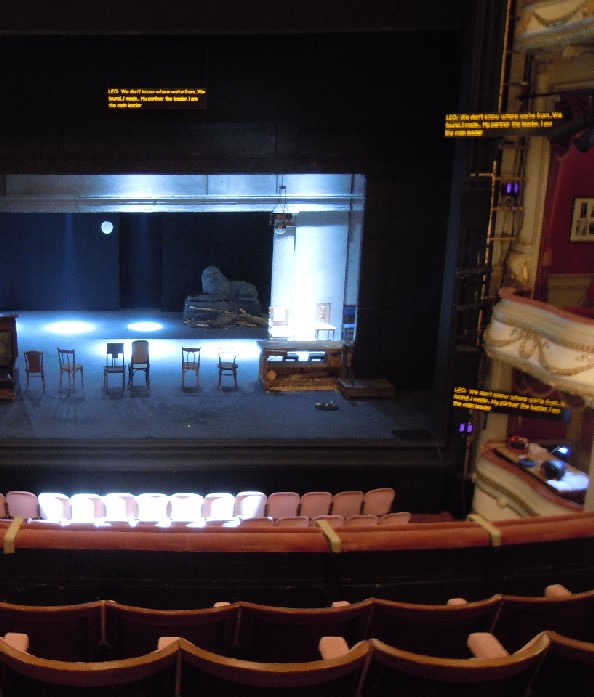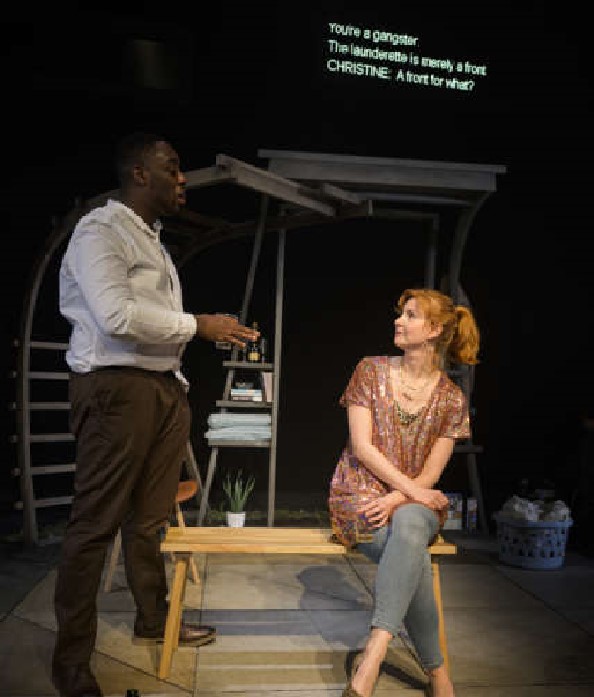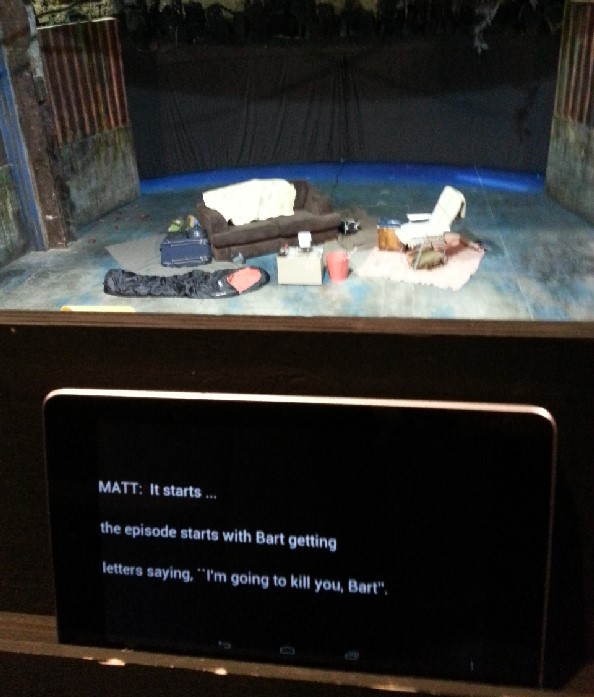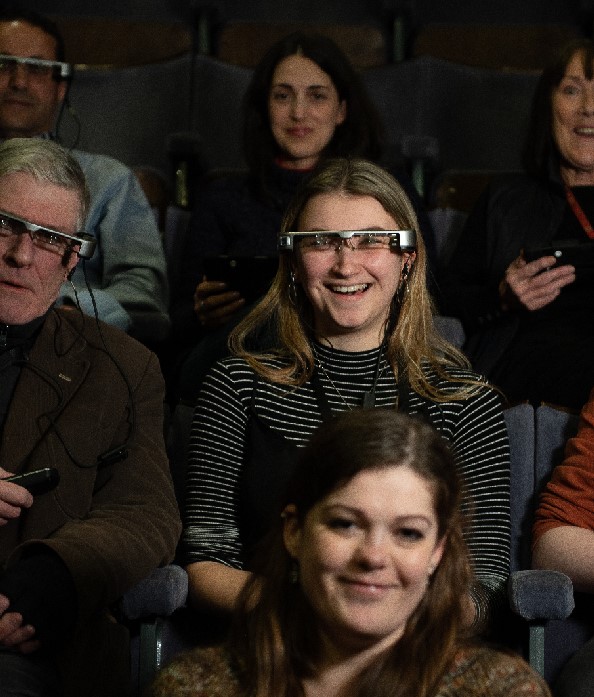
What is Open Captioning?
This term is used when Captions are displayed to the whole or to a designated section of the audience. Most commonly the text is displayed on LED Displays (Caption Units) but it can also be projected or shown on LCD panels.
It means that users do not have to declare in advance that they wish to make use of the service. These “Undeclared Users” may be audience members with a partial hearing loss who reference the Captions occasionally during a performance but would be uncomfortable using a Closed Captioning device such as a Tablet or Smart Caption Glasses.
The established convention is that three lines of text are displayed. Each line is output individually and is timed to synchronise with the actor speaking that line. As lines are spoken the text scrolls upward so that the latest line is at the bottom of the screen and the three lines on-screen together offer context for a clear understanding of what is being said.
To further help users, the names of the Characters and description of Music and Sound Effects are also displayed.


Ideally, users can choose a seat anywhere in the theatre and have a clear view of the Captions, but often Theatres will ask users to declare they wish to use the service when they purchase tickets and will then advise them to sit in a designated area to optimise their view.
What is Closed Captioning?
This term is used when Captions are displayed on a personal display device that is used by individual members of the audience who have asked to use the service.
The text is output to Tablet PC’s or Smart Caption Glasses either by a Captioner or automatically using a text recognition application.
Digital 4 has been central to the development of Closed Captioning. In 2015 we created and led the CaptionCue Project for Stagetext where we invited the National Theatre to be a “Venue Partner” in developing the automatic output of Captions to a range of Display Technology including Smart Eye Glass. In 2016 we introduced the use Epson Android Smart Caption Glasses as a Captioning option and shared this exciting development with them.


Theatres offering Closed Captioning train their FOH Team so that they are familiar with the devices and can support clients who wish to use them.
PleasecContact us for advice on whether Open or Closed Captioning will work best to make your show accessible
